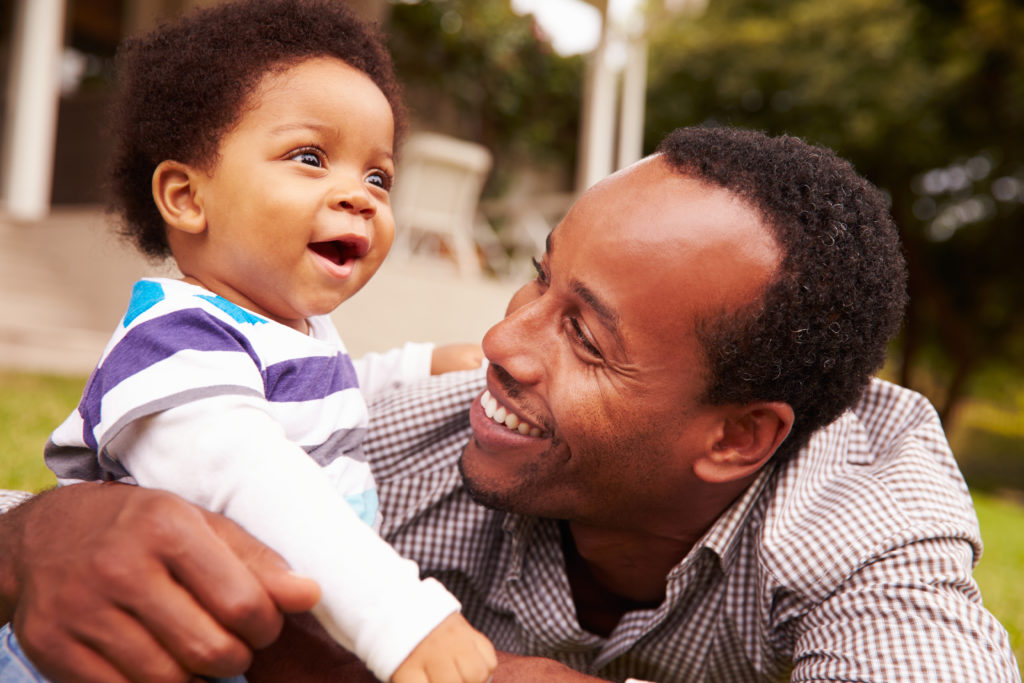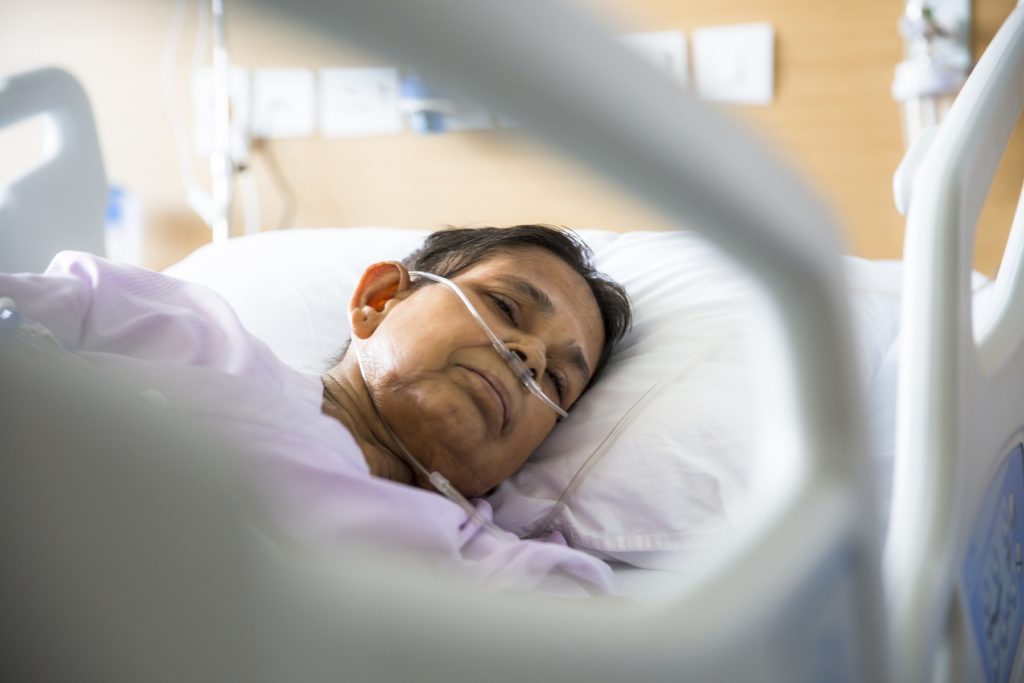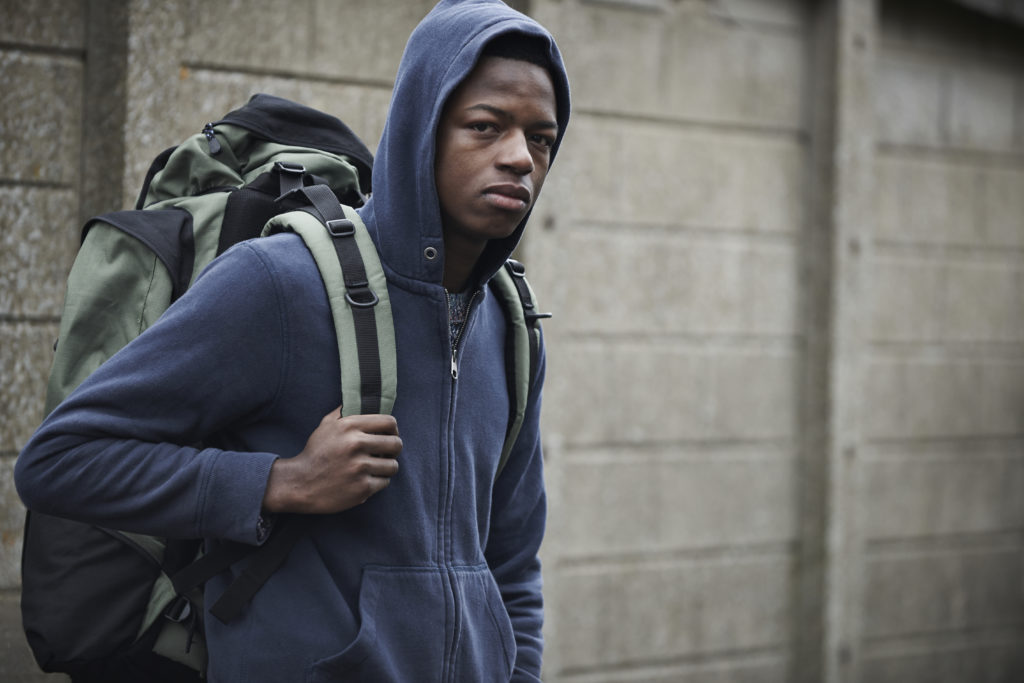The DC budget impacts all of us, every day. The budget is the most important reflection of our community’s priorities and creates the building blocks of thriving families and neighborhoods.
Mayor Bowser’s proposed fiscal year (FY) 2020 budget strengthens many of these building blocks—in housing, mental health, and more.
Yet as this review shows, the budget also falls far short of the investments needed to address DC’s challenges as an increasingly costly and inequitable city. In homeless services, schools, early education, immigrant health care, and more, the budget doesn’t take adequate steps to overcome long-standing and growing racial and economic inequities.
Read DCFPI’s The Top 5 Things You Should Know About the Mayor’s FY 2020 Budget here.
Affordable Housing: Proposed Budget Makes New Investments, But Doesn’t Reach Families Facing the Most Severe Housing Challenges
The proposed budget for FY 2020 reflects Mayor Bowser’s commitment to affordable housing, with notable increases. Yet in key ways, the budget doesn’t rise to the level that DC’s housing challenges demand. In particular, the budget does not include much additional support for the District’s lowest-income residents, outside of funding for homelessness.
Housing Production Trust Fund Increase, Yet More Needed
The Mayor’s proposed budget increases the District’s investment in the Housing Production Trust Fund (HPTF) to $130 million from $100 million in each of the last four years. This investment will support the District’s primary tool to finance the production and preservation of affordable housing for low- and moderate-income residents. While the budget reflects an important recognition that more is needed, it should be seen as a first step toward fully addressing rising costs of developing affordable housing and meeting the needs of families with extremely-low incomes. Funding the Housing Production Trust Fund at $200 million would help put DC on a path to meeting the most serious affordable housing challenges over the next decade.
In addition, 40 percent of Housing Production Trust Fund resources are required to serve DC’s poorest families (under 30 percent of Area Median Income), which typically requires HPTF resources to be paired with rental assistance from DC’s Local Rent Supplement Program (LRSP). Yet the proposed budget includes just $1.5 million for LRSP tied to projects, far less than the over $7 million needed to meet this targeting requirement.
Increase to Preserve Affordable Housing
The budget proposes a $5 million one-time increase to the public-private preservation fund that was created in FY 2018 and funded at $10 million in each of the last two years. The preservation fund provides financing to preserve, acquire, and rehabilitate the city’s disappearing affordable housing stock. The DC funding is expected to leverage $45 million from private partners.
No Funds for Public Housing Repairs
The Mayor’s proposed budget did not include any additional funding for public housing repairs, despite ongoing coverage of poor living conditions and the DC Housing Authority’s (DCHA) estimate that it needs $340 million for immediate repairs. Currently, one-third of DCHA units are approaching uninhabitability. Under rules adopted in recent years, unspent funds in other housing programs are devoted to public housing repairs, but this will only result in $15 million to $20 million, which pales in comparison to the need. Instead of funding repairs, the budget proposes a study of the DC Housing Authority’s governance and financing models. While it’s important to make smart investments, delays in funding will worsen pressing health and safety issues facing DC residents.
No Additional Tenant Rental Assistance
The proposed budget offers no funding to provide vouchers under the Local Rent Supplement Program to assist individuals and families currently on the DC Housing Authority waiting list. This means that the bulk of the 27,000 extremely-low income households spending at least half their income on rent will continue to face severe affordable housing challenges.
New Fund for Moderate-Income Families
The Mayor’s budget proposes creating a new “Workforce Housing” program, funded at $20 million, that would support the development of 1,000 units for families making up to 120 percent of the Area Median Income (AMI), or up to $140,000 for a family of four. The $20 million in local funding is expected to leverage another $180 million in private sector investment. While a wide range of DC families face challenges with rising rents and home prices, very few families at this income level face severe housing affordability problems. In a budget that provides no new funds for public housing repairs or rental assistance for extremely low-income families, prioritizing families with above-average incomes should be questioned.
Help for Seniors, Residents with Disabilities
On a positive note, the proposed budget includes an additional $2 million to expand the Safe at Home program to 400 residents, bringing the total program to $6 million. Safe at Home helps limited-income seniors and people with disabilities (at or below $75,000 for a two-person family) adapt their homes to reduce the risk of falls. The proposed budget also expands Schedule H (now known as the “Keep Housing Affordable” tax credit), a property tax credit for low-income renters and homeowners who spend an excessive portion of their incomes on property taxes. While the tax credit is not solely for seniors, seniors living on fixed incomes or living in gentrifying areas are especially likely to benefit from this increase. Under the budget, the maximum tax credit would rise from $1,025 to $1,200, and the maximum income eligibility would rise from $52,000 to $65,000 for non-seniors and from $70,000 to $80,000 for seniors, at a cost of $5.2 million.
Education: Proposed Budget Shortchanges All Schools and Fails to Make Progress Towards Equity in Educational Achievement
The proposed budget for schools fails to keep up with expected cost increases in DC Public Schools (DCPS). That means that overall, schools won’t be able to maintain all current staff and services. The proposed budget shortchanges students in low-income communities and students of color by not providing resources needed to address historic inequities in education access. Indeed, DCPS will continue the unfortunate practice of diverting half of “at-risk” funds for high-poverty schools to other purposes. Falling enrollment in some schools in low-income communities is leading to steep budget cuts.
School Funding Doesn’t Keep Up with Costs
The proposed budget includes a 2.2 percent increase in the per-student funding formula (UPSFF) for DCPS and public charter schools. Yet key cost drivers in DCPS, including the average expenses per teacher, are rising at a faster rate. This means schools are facing a loss in purchasing power that will lead to cuts in staffing or services across the system. The proposed budget also fails to implement recommendations of a recent Office of the State Superintendent of Education (OSSE) working group, which called for increasing the funds for at-risk students and English-Language Learners to bring them to the levels considered adequate.
Continued Diversion of “At-Risk” Funds from High-Poverty Schools
Since 2014, DC’s school funding formula has included a supplement to support students considered at-risk of falling behind academically. At-risk funds are a tool to promote equity by helping low-income students get the same kinds of enriching opportunities and services as their higher-income peers, and to ensure that students who are struggling academically get the targeted supports they need to succeed in the classroom. Yet because of budget constraints, roughly half of “at-risk” funds in DCPS have been misspent on regular staff positions, rather than on dedicated supports. This will continue under the proposed FY 2020 budget. This is particularly troubling given the distressing differences in educational outcomes for low-income students and their wealthier peers.
Community Schools Get a Boost
The proposed budget includes $1.6 million to expand DC’s “community schools” model to six more schools. This model recognizes that schools are not just centers of academic instruction but are among our most important and trusted community institutions. Schools can build on that strength to become community hubs by partnering with community-based organizations to connect children and their families with services that strengthen the whole community, like health care, afterschool programs, adult education, and early childhood programming.
More Needed to Address Student Trauma
The proposed budget includes $6 million to add mental health staff to 67 schools, as part of the implementation of recommendations from the recent Task Force on School Mental Health. This expansion, while notable, falls short of what’s needed to support students who face trauma related to poverty, neighborhood violence, and other factors. The budget fails to include funding to provide trauma-informed training for all schools, and it still leaves schools with too few counselors, psychologists and social workers. Trauma-informed training and additional staff are needed to provide positive behavioral supports for students envisioned in the 2018 Student Fair Access to School Act, which limited punitive and discriminatory discipline practices like suspension.
Early Childhood: Proposed Budget Makes Only Modest Progress Towards Reforms that Would Give All Children a Strong Start from Birth
The period from birth to age three is critical for social, emotional and cognitive development. Research confirms that quality early care has enduring effects on the life chances of children. Yet too many DC children in families with low incomes and children of color face barriers to academic achievement beginning at birth. In 2018, the District adopted the “Birth to Three for All DC” Act, a comprehensive legislative blueprint to strengthen the quality of early education, make child care more affordable, expand home visiting, and provide coordinated medical services for young children and families.
The proposed budget includes $5 million to improve the quality of early education for children in low-income families, well below the $30 million needed for reforms in the “Birth to Three for All DC” legislation. More funding is needed to support a skilled and stable early education workforce and home visiting programs that help families succeed.
Health: Proposed Budget Includes Important Investments in Mental Health but Fails to Fund Needed Immigrant Health Reform
DC’s health programs touch over one-third of residents, and the rate of health insurance coverage in DC is among the highest in the nation. One shortcoming in DC’s health system are the barriers the city has created to accessing the DC Healthcare Alliance, a program that largely serves immigrants. The proposed health budget keeps those barriers in place. The proposed budget also includes some increases in mental health services, including schools.
Immigrant Health Barriers Remain in Place
The proposed FY 2020 budget keeps in place barriers to accessing health care through the DC Healthcare Alliance—a program for low-income residents that primarily serves immigrants. The Alliance suffers from a very high rate of turnover, or “churn,” which means that many Alliance participants have only intermittent health coverage. The high rate of churn reflects a requirement that Alliance participants visit a DC social service center every six months to maintain their eligibility, instead of the annual recertification most DC benefit programs have. Churn from frequent recertification contributes to poor health outcomes and increases health program costs. This is because it limits access to preventive care, which means participants often are sicker when they re-enroll, and because sicker residents are most willing to go through the process of maintaining coverage. Legislation to replace the six-month requirement has been adopted but cannot be implemented because it was not funded in the FY 2020 budget.
School-Based Mental Health Expansion
The proposed budget includes $3 million to increase health provider rates for those who provide substance use disorder and mental health rehabilitation services. It also provides $6 million to continue implementing the recommendation of the Department of Behavioral Health’s (DBH) Task Force on School Mental Health, adding mental health staff to 67 schools. On the negative side, the proposed budget does not replace expiring federal funds for street outreach to residents experiencing homelessness who have a mental illness. Without replacing these funds, efforts to end chronic homelessness will be hampered, since street outreach can be critical to getting residents with severe mental illness to accept housing.
Homeless Services: Proposed Budget Makes Some Investments, But Too Little to Be on Track to End Homelessness
The proposed budget makes needed investments in services and shelter for residents experiencing homelessness but does not invest enough to end homelessness in the next 4 years. Significant gaps also remain in street outreach, services for domestic violence survivors, and public restrooms.
Funding for Homeless Individuals Won’t Go Far Enough
The budget adds $8.8 million to provide permanent supportive housing (PSH) to 325 individuals facing chronic homelessness. PSH provides long-term affordable housing coupled with intensive case management services, which saves a substantial amount due to reduced reliance on crisis services. This funding is far below the PSH for 986 individuals needed to put DC on a path to ending chronic homelessness in four years.
The budget also adds $421,000 for Targeted Affordable Housing (TAH) for 20 individuals, which helps residents pay rent without intensive services provided by PSH, or pay rent after their short-term Rapid ReHousing (RRH) subsidy ends. This is well below the 154 TAH units needed to end chronic homelessness in four years.
Housing for Families Experiencing Homelessness Falls Short
The budget includes $6.3 million for 180 PSH units for families, fully meeting the recommended level to end chronic family homelessness. The budget also includes $2 million for TAH for 80 families, serving just a small share of the nearly 1,000 families facing homelessness and long-term affordability challenges. DCFPI recommends increasing funding to provide TAH to 500 families.
More Investments Needed for Youth Homelessness
The budget adds funding for 15 new PSH beds and for 23 new transitional housing beds for youth, falling short of the 50 beds in each program called for by the DC Alliance of Youth Advocates (DCAYA). The budget also supports 30 additional RRH beds, meeting the target set by DCAYA. The budget continues $400,000 in one-time funding from the FY 2019 budget to provide for a drop-in center, homelessness prevention, and “aftercare” services to formerly homeless youth. Finally, the budget does not include $250,000 for a pilot mentoring program, a need expressed by youth experiencing homelessness who provide input to the Interagency Council on Homelessness.
No New Funds for Housing for Domestic Violence Survivors
The budget doesn’t include any additional funding for domestic violence survivors, even though domestic violence is one of the leading causes of homelessness. The DC Coalition Against Domestic Violence (DCCADV) called for an investment of $4 million to help survivors of domestic violence stay safe and avoid homelessness. This funding was to be used for emergency/crisis housing, flexible funds to help survivors stay safely in their homes, and case management.
Increased Funds to Improve Singles Shelters
The proposed budget adds $23.8 million to build a 200-bed replacement for the Harriet Tubman Women’s Shelter. This shelter will be moved to a new site on the DC General campus where the current shelter is located. The budget also adds $3 million to the $8.5 million allocated in last year’s budget for much needed renovation at the New York Avenue men’s shelter.
No Investments for Street Outreach
Over the past three years, DC nearly doubled its street outreach to individuals experiencing homelessness and living outside, primarily funded through a federal grant. This federal grant expires before the end of FY 2019, and the proposed budget provides no funds to replace it. An estimated $3.5 million in new local funds is needed to support a comprehensive, coordinated, and sustainably funded Street Outreach Network.
Increased Funds for Building and Operating Family Shelters
The proposed budget adds $11 million to support operations of the new shelters that replace the dilapidated DC General Family Shelter and apartment-style shelter units that were lost when a provider couldn’t sign a new lease for the building. The budget also includes $715,000 in additional capital funding for the Ward 1 family shelter.
Budget for Eviction Prevention Decreases
The proposed budget cuts funding for the Emergency Rental Assistance Program (ERAP), which helps residents facing eviction pay for overdue rent and related legal costs, as well as security deposits and first month’s rent. The proposed FY 2020 budget includes nearly $6.8 million for ERAP and removes $624,029 of one-time funds added to the FY 2019 budget for this purpose.
Increased Funds for Homelessness Prevention, Diversion, and Rapid Exit Programs
The budget adds $875,000 to the soon to be launched Project Reconnect, a program that helps individuals who are newly homeless find alternatives to shelter such as reuniting with friends and families. This increase will allow the program to serve 1,000 people, twice as many in 2020 than in 2019.The proposed budget adds $800,000 to expand the Homeless Prevention Program (HPP) to 300 additional families. HPP works to prevent a family at imminent risk of losing housing from becoming homeless through the provision of stabilizing services and resources.
No Funding for Public Restrooms
DC has only three public restrooms that are open 24 hours. This leaves many residents, particularly residents experiencing homelessness, with no place to go. DC recently passed legislation that will increase access to public restrooms, but the budget provides no funding for it to go into effect. The Council should invest $336,000 in FY 2020 to pilot two 24-hour standalone public restrooms in high-traffic neighborhoods and offer incentives to businesses to open their bathrooms to the public.
Jobs and Training: Proposed Budget Maintains Current Commitments to Workforce Development and Entrepreneurship
The Mayor’s proposed budget largely maintains support for DC’s key employment training and entrepreneurship programs. The proposed budget expands targeted support for microbusiness entrepreneurs in Wards 7 and 8, and reflects higher staffing costs for the paid family and medical leave program that will start providing benefits in FY 2020.
Department of Employment Services Continues to Underspend but Shows Improvement
Over the past five years, the Department of Employment Services (DOES) has routinely spent less than its available funding, raising concerns about its ability to meet the needs of unemployed and underemployed residents. One of the largest gaps was in FY 2016 when the department spent $67 million on employment services compared with $75 million in available funding. In FY 2018, DOES spent $75 million on employment services and budgeted for $79 million, showing a marked improvement. (All figures have been adjusted for inflation.) Disparities in unemployment point to great needs for employment assistance; for example, the unemployment rates in Wards 7 and 8 are more than double the average of the other six wards.
Subsidized Job Programs Slightly Reduced
The proposed FY 2020 budget continues to make investments in four main subsidized job training programs, but at slightly lower levels than last year.
Mayor Marion S. Barry Summer Youth Employment Program (MBSYEP) is a locally funded program that provides District youth with summer work experiences through subsidized placements in the private and government sectors. The budget proposes a wage increase for 22 to 24 year-old participants. Since many participants are now eligible for the Kids Ride Free program, MBSYEP was able to reduce transportation assistance, which offset the costs of the wage increase.
The Transitional Employment Program (also called Project Empowerment) is a subsidized job program specifically targeted to returning citizens and others with high barriers to employment. The budget proposes $9.8 million in funding for FY 2020, compared with $10.5 million for FY 2019 (when adjusted for inflation).
The DC Career Connections Program (DC-CC) is a work readiness program started in FY 2017, specifically targeted to youth aged 20 to 24. The budget proposes small decreases to funding levels at $3.7 million, as compared to the approved $4.4 million in FY 2019 (when adjusted for inflation).
Learn Earn Advance Prosper (LEAP) Academy was started in 2016 as a training and subsidized employment program for jobs in DC government and is specifically targeted to long-term TANF recipients. The proposed budget slightly decreases but generally holds steady this amount for FY 2020.
Proposed Budget Continues to Shore Up Paid Family Leave
DC’s Paid Family Leave program provides up to eight weeks of parental leave to bond with a new child, six weeks of family leave to care for an ill family member with a serious health condition, and two weeks of medical leave to care for one’s own serious health condition. Last year, the approved budget provided $5.1 million for implementation and $40 million in capital costs. The FY 2020 budget increases this request to $9.4 million. The program goes into effect next year for non-government workers.
Continued Support for Entrepreneurs
Within the Department of Small and Local Business Development, the proposed budget includes $250,000 to expand assistance to returning citizens through the Aspire to Entrepreneurship program, which provides returning citizens with training to assist in business pursuits. The budget also includes $200,000 to continue supporting Dream Grants in the Business Opportunity and Access to Capital division—a micro loan program for small business entrepreneurs. This investment aims to specifically support microbusiness entrepreneurs in Wards 7 and 8, some of whom have faced difficulties fairly competing to win lucrative city contracts.
Revenue: Increased Resources Allow New and Maintained Investments in Crucial Services for DC Residents
The FY 2020 budget includes over $100 million in new revenue that is critical to maintaining services and supporting the budget’s service expansions. About one-fourth of the revenue comes from reversing a commercial property tax cut approved by the DC Council late last year. As a result, commercial property tax rates will be the same as in the budget adopted by the DC Council for FY 2019. The budget also increases the one-time taxes paid when large commercial properties are sold, raising substantial revenues by tapping into DC’s vibrant commercial real estate market. Without these revenue increases, funding for many programs and services would have been much lower.
The budget also includes some tax reductions to help select groups of residents continue to afford living in DC. This includes expansion of a property tax credit for low-and moderate-income residents who have high property taxes (Schedule H), which is especially helpful to seniors staying in their homes. In addition, the budget adds a sales tax exemption for diapers to help parents with infants and toddlers.







